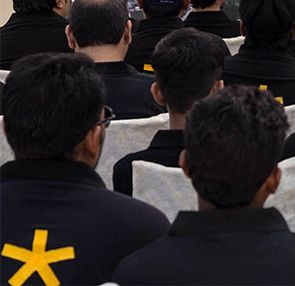Landscape Pvt. Ltd. participated at a workshop titled ‘Building Creative Economy’ organized by UNESCO. This was held at Beach Luxury Hotel on the 19th of July 2016.
The purpose of the UNESCO workshop was two-fold:
1. To provide the opportunity to engage in a conversation about creativity, entrepreneurship and business development in the Creative and Cultural Industries. Hence, to build your network across the sectors that make up the creative economy.
2. To develop a series of creative business case studies that reflect the breadth of the potential of Pakistan’s Creative Economy.
UNESCO shall be presenting these developed case studies in a Conference before Pakistani parliamentarians at a national, provincial, and city level. The aim is to persuade the Pakistan government to ratify UNESCO’s 2005 Convention on the Protection and Promotion of the Diversity of Cultural Expressions. And, at a provincial, national, and city level to recognize the importance of and put in policies to implement the Convention and support the development of the Creative Economy.
The engagement of civil society, particularly creative entrepreneurs and creative businesses, is critical to this process; given that their understanding of the needs of their businesses will be key to the implementation of practical policies in support of the Creative Economy.
Andrew Senior had structured the Workshop around the concept of ‘Creative Business Triangulation’ that recognizes the different drivers within a successful creative business. These entail the types of roles and skills that coalesce to make a creative business successful.
Similarly, Andrew highlighted the impact of roots of the 2005 Convention on the development of the Creative Economy. As well as, changing business models and the impact of digitization and building markets, at home and abroad, and in the long tail.
Interactive Session:
We shaped Working Groups to think about the businesses represented by each, and question and challenge one another about the approaches that each of the group member takes in their business development. The exercise let everyone discuss over plenty of common issues. This included access to finance, protection of Intellectual Property, and building and maintaining a customer base – that one faces.
Furthermore, we developed case studies from the businesses, to make the case for the potential of the Creative Economy. As well as, to identify a critical policy intervention that could support creative business development.


